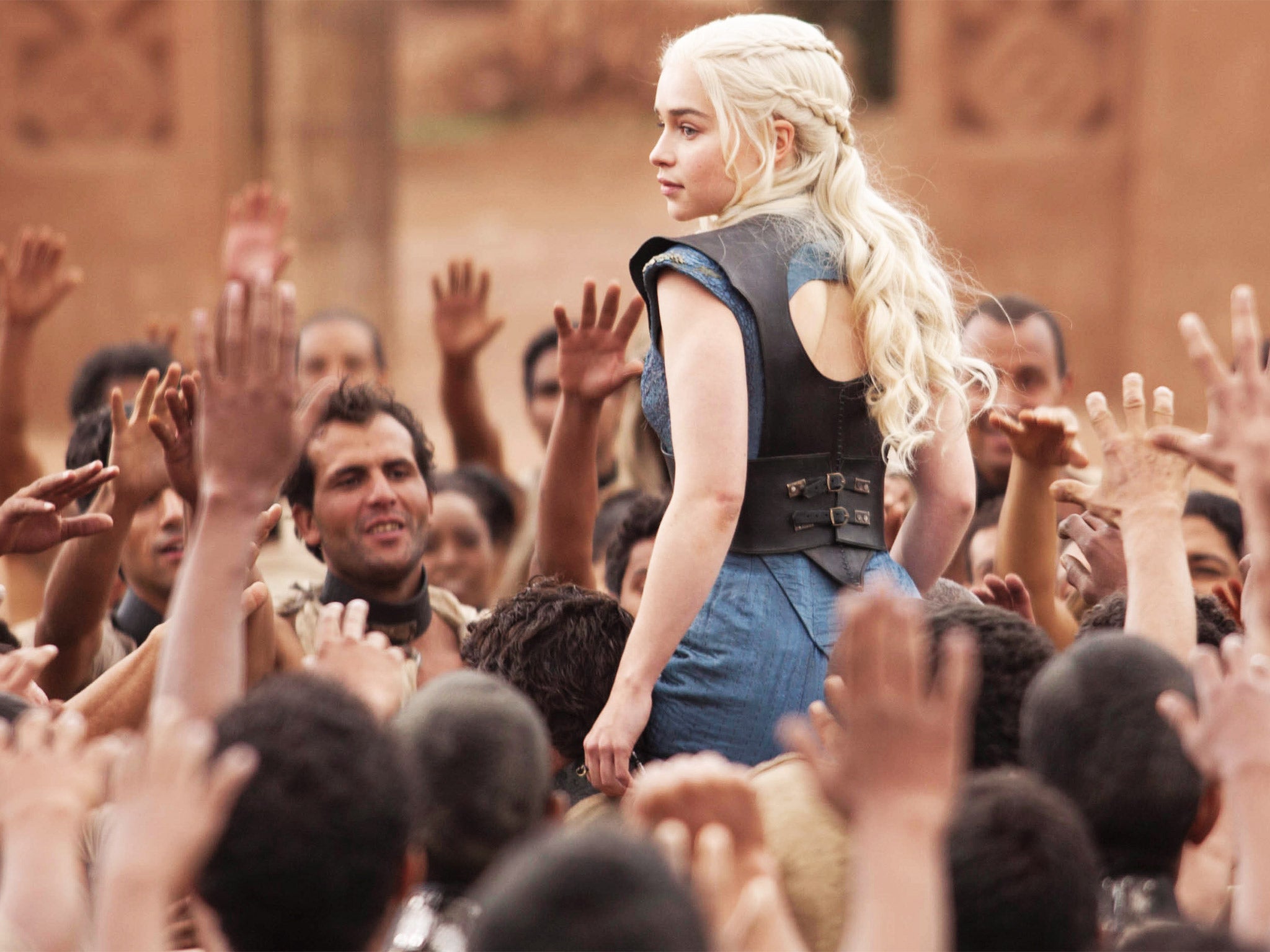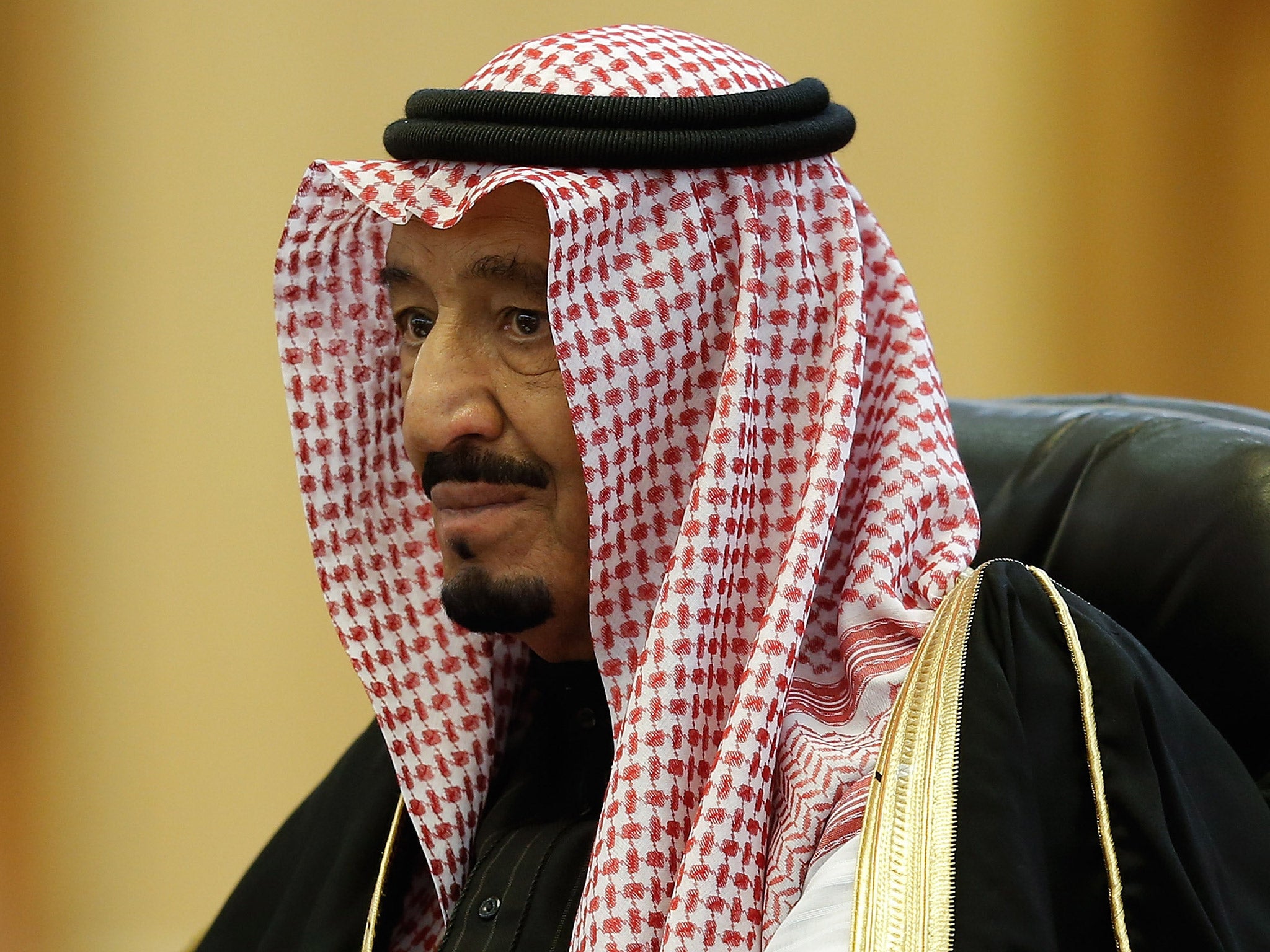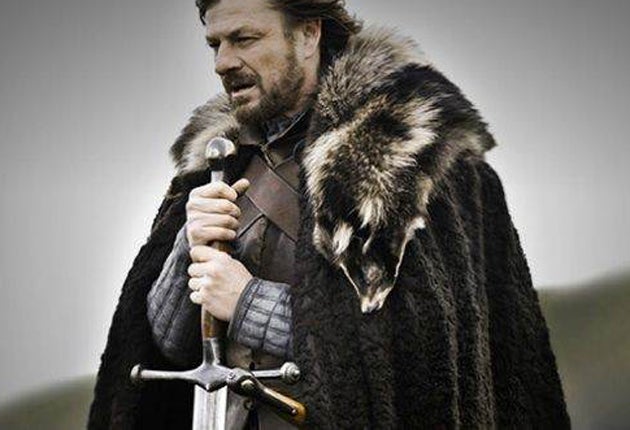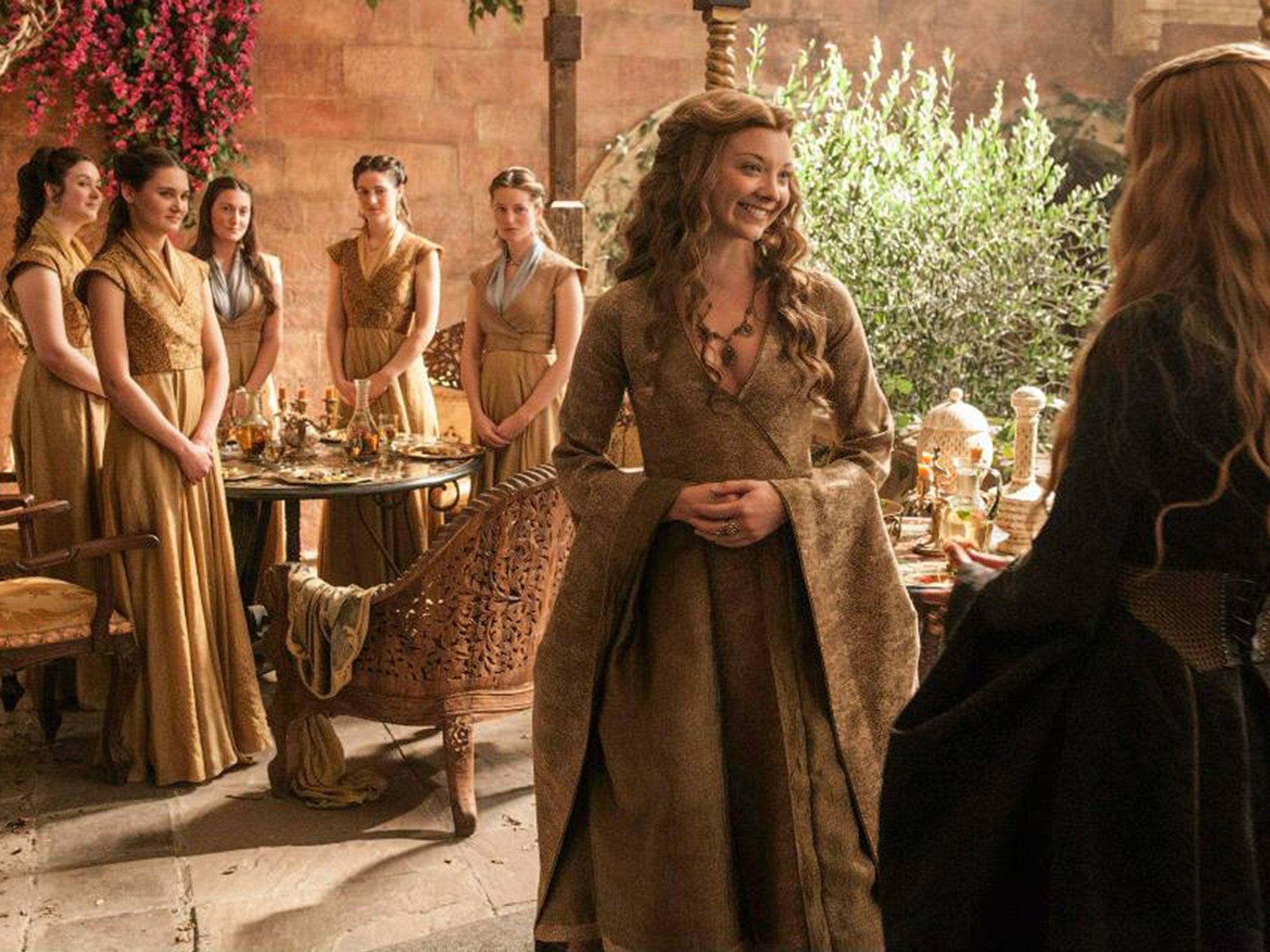Game of Thrones season 5: What would Westeros be like if set in the Middle East?
Yes, it's a silly, hypothetical question – but here we identify the feuding states and factions of the region if they existed in Westeros

Your support helps us to tell the story
From reproductive rights to climate change to Big Tech, The Independent is on the ground when the story is developing. Whether it's investigating the financials of Elon Musk's pro-Trump PAC or producing our latest documentary, 'The A Word', which shines a light on the American women fighting for reproductive rights, we know how important it is to parse out the facts from the messaging.
At such a critical moment in US history, we need reporters on the ground. Your donation allows us to keep sending journalists to speak to both sides of the story.
The Independent is trusted by Americans across the entire political spectrum. And unlike many other quality news outlets, we choose not to lock Americans out of our reporting and analysis with paywalls. We believe quality journalism should be available to everyone, paid for by those who can afford it.
Your support makes all the difference.When he delivered his fiery speech to Congress in March, declaiming the Iranian regime, Israeli Prime Minister Benjamin Netanyahu deployed a rather memorable phrase. He equated the Islamic republic with the jihadists of Isis, arguing "both want to impose a militant Islamic empire" on the world. He went on to say that both the extremists and Tehran's leadership were waging "a deadly game of thrones."
The Washington Post's WorldViews blog picked apart Netanyahu's speech that day here, but the Israeli leader planted another seed. What if the fantasy world of Game of Thrones, the vastly popular HBO series based on the books by George RR Martin, was indeed transposed to the fractious Middle East?
Yes, it's a silly, hypothetical question. But the Game of Thrones universe is so rich with metaphors that it's already been used to explain everything from American presidential candidates to English soccer teams. The following is WorldViews's rough starter guide to the Middle East's "Game of Thrones" — identifying the feuding states and factions of the region if they existed in Westeros, the fictional continent where most of Martin's story takes place.
**A disclaimer: The analogies are far from exact (which ought to be expected when you graft imaginary medieval fantasy things onto a real part of the world that is a lot more complicated.) If you have not watched the show or read the books, you probably won't follow the allusions to current affairs; if you have, you may likely disagree with them.**
House Lannister = Saudi Arabia
The wealthiest and most powerful house in Westeros, the Lannisters are kingmakers. To the house's lead patriarch, family matters before all. The Lannisters' influence can be felt in direct and subtle ways across the realm, even in places far from their domains. They are criticized by some for having a record of abuse and brutality, while others resent how their power has been built purely on the natural resources found beneath their lands.

More than anything, the Lannisters care about preserving the political status quo that they helped establish in the region. Recent events — and Lannister overreactions — may lead to a dangerous unraveling.
House Stark = Middle East's crushed liberals and democrats
For longer than most remember, the Starks laboured in the remote north of Westeros, out in the cold. Then, they had a brief moment in the sun — only to be brought down by what's remembered as a bitter, tragic betrayal.

Now, they are hounded wherever they turn. Some, faced with little choice, were co-opted by those they shouldn't trust. Others have gone underground or abroad and are waiting for their fortunes to change. There had been talk of spring, but for the Starks, winter truly came.
House Baratheon = Arab autocrats
Until recently, House Baratheon ruled over much of the realm, sometimes with a guiding Lannister hand. The recent troubles have led to divisions within their camp. One faction seeks to upstage the Lannisters — so desperately that it has led to quixotic adventures far from their traditional home.

Watch Apple TV+ free for 7 days
New subscribers only. £8.99/mo. after free trial. Plan auto-renews until cancelled

Watch Apple TV+ free for 7 days
New subscribers only. £8.99/mo. after free trial. Plan auto-renews until cancelled
House Targaryen = United States*
The Targaryen dynasty came from afar and lorded over Westeros for decades. Their vastly superior firepower — literally, dragons — was a guarantor of their hegemony; an alliance of convenience with the Lannisters didn't hurt, either. But upheavals in the realm have cast the Targaryens out in the wilderness, and relations with the Lannisters have frayed. There are some still in Westeros who clamor for their return. Whatever the case, their weaponry is coveted by all of Westeros's pretenders to the throne.
House Greyjoy = Turkey
The Greyjoys remember fondly a distant age when they counted large swathes of Westeros under their dominion, but it's ancient history to almost everyone else. Steeped in their own traditions and ways, their recent interventions in parts of the region have smacked of political naïveté.

Their leader was once a strong, transformational figure, but now more regularly fumes in his citadel, fearful of enemies closing in around him.
House Martell = Iran**
House Martell of the southern region of Dorne has always seen itself as distinct from the other major houses of Westeros. They come from a different ethnic background and take pride in their own myths and legends. Their hatred of the Lannisters is matched only by the long-standing enmity for the Tyrells (see below).
House Tyrell = Israel**
The Tyrells pride themselves on the prosperous realm that they've cultivated in Westeros, removed from wider ruin and dysfunction.

They've had to hold their nose and find common cause with the Lannisters, despite obvious differences. Their rivalry with (and mistrust for) the Martells of Dorne is on a constant simmer, and sometimes flares into open conflict.
Wildlings = Islamists
The Wildlings – they call themselves the "free folk" – were always there, and in many ways are just like everyone else in Westeros. But some of the land's noble houses conspired to subdue them, and built a vast Wall to keep them out. Their latest attempts to come out from the cold have been met by stiff resistance, particularly by one wing of the Baratheon clan.
White Walkers = Isis
The Wildlings are in truth fleeing these monstrous creatures, some of whom are zombie Wildlings. The White Walkers are shockingly effective in their tactics, and swallow up new recruits into their mysteries at frightening rates. There's a lot of debate over where they come from and what they want, but everyone agrees that they're awful.
Night's Watch = Kurds
On the frontlines in the fight against both the Wildlings as well as the more terrifying White Walkers, the Night's Watch mans the Wall that guards the other kingdoms of Westeros.

Their clashes with the Wildlings and White Walkers have intensified in recent times. Some people believe they are as lousy a pack of scoundrels and criminals as those who they battle. Their lobbying efforts in the main capital have yielded a degree of support.
The Riverlands = Yemen, Syria, Iraq, and elsewhere
Who remembers when these lands were lush and peaceful? Now, all is war and ruin as the great houses vie for supremacy. Amid the violence, it's the smallfolk who pay the most hideous price.
*WorldViews recognizes that this parallel exaggerates the degree to which the United States has been sidelined from the strategic discussions in the Middle East. It is obviously still a key, perhaps preeminent actor in the region.
**WorldViews recognizes that these parallels obscure some of the criticism of the Iranian and Israeli governments, and do not mention the negotiations for a nuclear deal with Iran, Tehran's support for proxy militias in other corners of the Middle East or Israel's problematic treatment of the Palestinians. But you try finding all of that in the Westeros of "Game of Thrones."
(C) Washington Post
Join our commenting forum
Join thought-provoking conversations, follow other Independent readers and see their replies
Comments